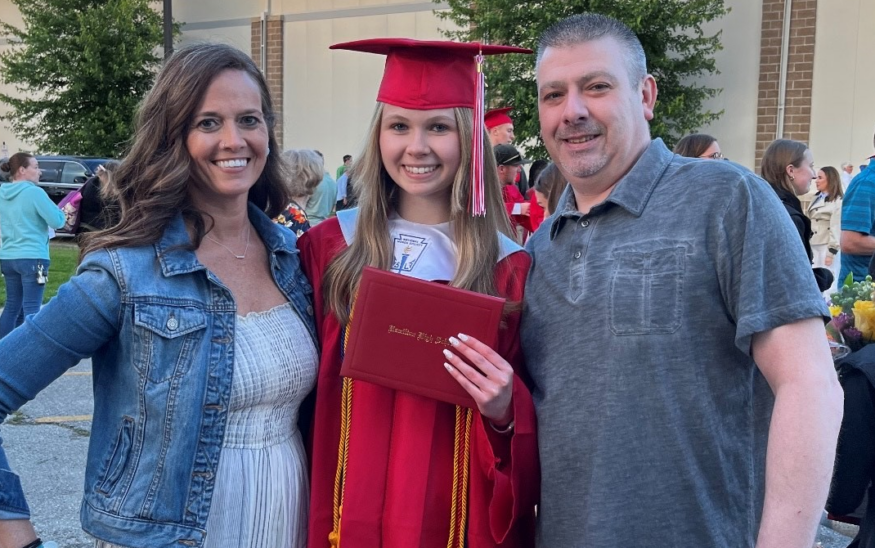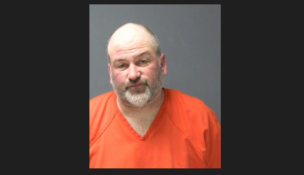Redistricting could draw attention to Wisconsin’s Med Mal legal gap
By: MaryBeth Matzek, Special to the Wisconsin Law Journal//May 14, 2024//
Redistricting could draw attention to Wisconsin’s Med Mal legal gap
By: MaryBeth Matzek, Special to the Wisconsin Law Journal//May 14, 2024//
New Legislative maps may help close a loophole in Wisconsin’s caselaw preventing an adult child from suing a healthcare practitioner for malpractice in their parent’s death.
As previously reported, under current Wisconsin laws, only surviving spouses and minor children can file a malpractice lawsuit. For almost two decades, attorney Robert Jaskulski, a Shareholder with Habush Habush & Rottier in Milwaukee, has tried to change that.
“If a person dies in an automobile accident, an adult child can make a claim but if a person dies due to malpractice, they can’t. Deaths due to medical negligence are treated differently in Wisconsin,” said Jaskulski, a past president of the Wisconsin Association for Justice (WAJ) and current chair of the organization’s Legislative Task Force.
The closest the Family Justice Bill — which would allow adult children to file a malpractice suit — got to passing was in the 2008-09 legislative session when hearings were held and it passed in the State Senate before failing in the Assembly.
“It’s a very partisan issue,” Jaskulski said.
With the state’s new legislative maps, there’s hope the Family Justice Bill could make inroads in the next legislative session, he said. If one of the Legislative houses switches to Democratic control, it’s likely hearings could be held. Those hearings would draw additional public attention to the issue, increasing the chance it would pass at least in one of the houses. From there, momentum could build to pass the bill in the following session in both houses.
Rep. Christine Sinicki of the 20th Assembly District has introduced Assembly Bill 923 several times. but it has yet to get a hearing. She said the Wisconsin Hospital Association has a strong lobbying presence in Madison and is against any changes to the state’s malpractice law.
“When I first started working on this issue 10 years ago, I didn’t know a lot about it but since then, I have heard so many horror stories,” Sinicki said. “It’s not about the money, but about getting answers. It’s definitely an issue I’m committed to fixing.”
Before 1975, adult children could file a claim if someone died due to medical malpractice but a change in state statute created a loophole.
“It was an unintended consequence of the law change that adult children were no longer to make a claim,” Jaskulski said.

Jaskulski is not interested in changing the law so he can take on additional cases. Rather, he wants the law changed because it’s unfair to victims.
“It’s about making something right. Wisconsin is one of the hardest states to prove a malpractice claim in and only one of a handful where adult children cannot file a claim,” he said.
An unintended consequence
Todd Islo went to a Wisconsin Urgent Care facility in January 2023 presenting with headaches, fatigue, a depressed appetite that resulted in significant weight loss, abdominal pain, a fast heart rate and shortness of breath with activity. The nurse practitioner treating Islo gave him a diagnosis of bronchitis even though he had no cough or respiratory symptoms. The nurse practitioner prescribed an inhaler and steroids. Five days later, Islo died at home, with the autopsy revealing he died from diabetic ketoacidosis.
While Islo was not diagnosed with diabetes, his medical record listed family members with the disease and included a note he should watch his diet due to high diabetic lab results. Islo’s former wife, JoEllen, said his records were reviewed after his death by multiple healthcare providers who concluded the nurse practitioner missed several signs that diabetes and not bronchitis were the cause of his symptoms.
After what happened, JoEllen Islo approached an attorney about filing a malpractice lawsuit against the health practitioner on behalf of her 18-year-old daughter. She was stunned to learn adult children — even those still living at home and recognized as dependents on their parents’ taxes — were not allowed to seek damages.
Islo reached out to several attorneys who all provided the same answer — if they replied at all — that the daughter could not file a claim since she was legally an adult.
She also spoke to a doctor, who also practices in Illinois, who said the daughter would have a case if it had happened in Illinois. “It’s very frustrating and unfair. It’s not about the money — it’s about accountability,” she said.
Islo, who works in healthcare, reached out to the provider about the care her ex-husband received but was told the nurse practitioner did everything right and followed proper protocol.
“That’s just not right. Her own exam said his lungs were clear yet Todd was diagnosed with bronchitis,” she said.
Jaskulski said family members are “surprised and devastated” to learn that in Wisconsin adult children cannot file a malpractice-related claim related to loss to companionship and society.
“It’s an uncomfortable conversation when someone comes in and talks about filing a malpractice case,” he said. “There’s a big sense of unfairness. It’s a bitter pill for them to swallow.”
Sinicki has one piece of advice for people and families looking to change the law.
“Contact your legislators and tell them your story. If we can get enough legislators to listen about how unfair the law is and the damage it causes, we might get enough minds changed that we can get the law changed.”
Islo reached out to both her state Assembly representative, Tom Michalski, and state Senator, Rob Hutton, and received no response.
“I’ll keep at this because it’s just not right,” she said.
Legal News
- Wisconsin Supreme Court to consider whether 175-year-old law bans abortion
- Wisconsin man facing bestiality and felony bail jumping charges
- Waukesha County woman indicted in National Health Care Fraud Law Enforcement Action
- Man sentenced to 15 months for fraud involving luxury vehicles
- Wisconsin Department of Justice Fire Marshal investigating fire that killed six
- Ozaukee County first responders save family of three, father and son on Milwaukee River
- Supreme Court sends Trump immunity case back to lower court, dimming chance of trial before election
- Brewers have American Family Field escalators inspected after malfunction results in 11 injuries
- US wants Boeing to plead guilty to fraud over fatal crashes, lawyers say
- GOP lawmakers in Wisconsin appeal ruling allowing disabled people to obtain ballots electronically
- 11 people injured when escalator malfunctions at Milwaukee ballpark
- Judge receives ethics fine after endorsing candidate
Case Digests
- Termination of Parental Rights
- First Amendment Rights
- Termination of Parental Rights
- Late Filing
- Real Estate-Attorney Fees
- Ineffective Assistance of Counsel
- Variance-Interpretation of Zoning Ordinances
- Sentencing
- Fourteenth Amendment’s Due Process Clause-Jury Instructions
- Unlawful Collection Practices-Evidence
- Sentencing-Vindictiveness
- Prisoner Grievances-Exhaustion of Administrative Remedies












